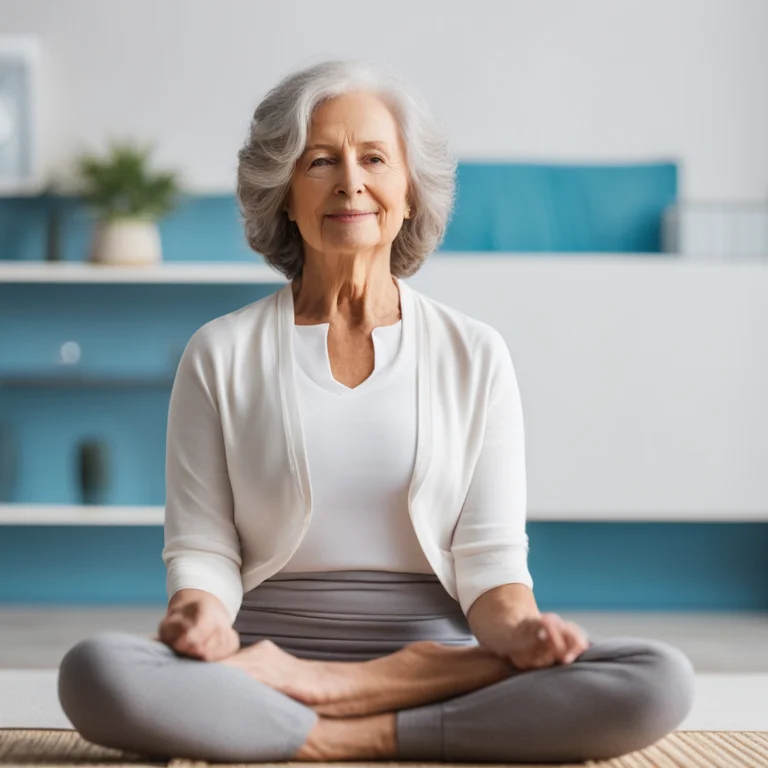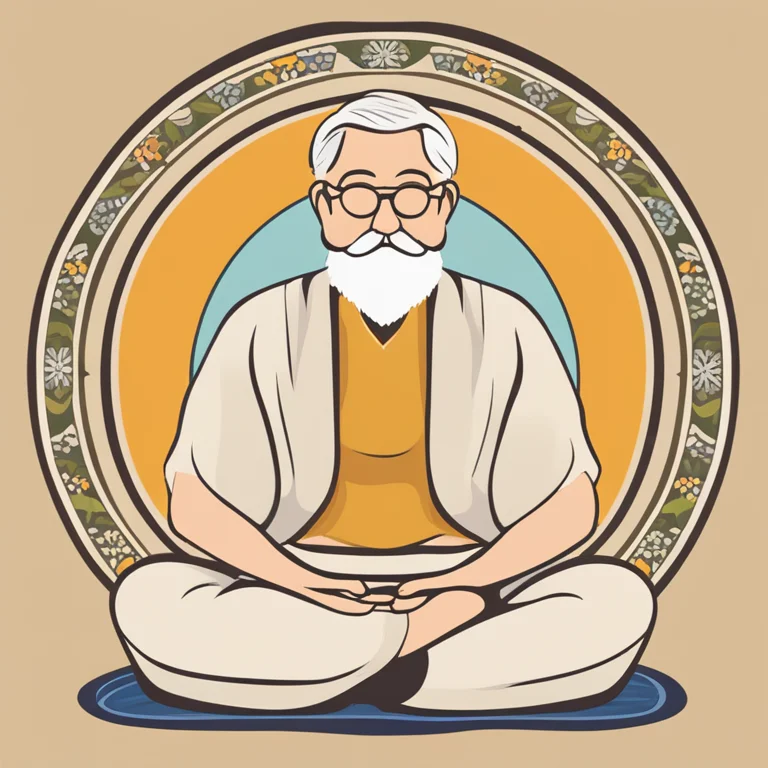
Elderly Serenity Through Mindfulness Meditation
Discover the benefits of mindfulness meditation for seniors, promoting mental clarity, emotional balance, and overall well-being.
article by Hina Kurosawa
Introduction to Mindfulness Meditation
Mindfulness meditation has emerged as a powerful tool for improving quality of life, particularly among the elderly. This ancient practice centers on the present moment, encouraging practitioners to observe their thoughts, feelings, and bodily sensations without judgment. Through mindfulness, seniors can cultivate a deeper sense of peace and clarity, navigating the challenges of aging with grace. The practice has been lauded for its ability to reduce stress, enhance cognitive function, and promote emotional health—a cornerstone for thriving in one's later years.

The Aging Mind and Meditation
As we age, our cognitive abilities and emotional resilience are often tested. Memory can falter, processing speed may slow, and emotional regulation can become more challenging. Mindfulness meditation offers a beacon of hope. Research shows that engaging in regular mindfulness practice can slow cognitive decline and improve emotional well-being. For seniors, this means a potentially richer, more vibrant life, as they learn to live each moment with intention and awareness.

Meditation's Health Benefits for Seniors
The health advantages of mindfulness meditation for the elderly are well-documented. Counteracting the effects of stress, it can reduce blood pressure and bolster the immune system. Additionally, by promoting relaxation, it aids in better sleep, which can be particularly beneficial for seniors who often grapple with sleep disturbances. Furthermore, mindfulness has been linked to pain reduction, which is poignant for those dealing with chronic age-related conditions.

Starting a Mindfulness Practice in Later Life
Adopting a new practice like mindfulness meditation can be daunting for seniors, but it doesn't have to be. The beauty of mindfulness lies in its simplicity and accessibility. One can start with just a few minutes each day, sitting quietly and focusing on the breath. There are also numerous resources available, including guided meditations and community classes tailored for seniors, making the beginnings of this journey welcoming and guided.

Integrating Mindfulness into Daily Routines
Mindfulness extends beyond the cushion; it's an approach to living. For the elderly, this can translate into mindful eating, walking, or even engaging in conversation. These practices inculcate a state of active, open attention on the present, enveloping routine activities with a sense of purpose and groundedness. This integration is key to reaping the continuous benefits of mindfulness throughout one's senior years.
Mindfulness as a Social Activity
Mindfulness doesn't have to be a solitary activity. Many elderly individuals benefit from practicing in groups, which can enhance feelings of connection and reduce loneliness—a significant issue for many seniors. Community centers often offer group sessions, where sharing the experience can lead to shared growth and support, important components for maintaining mental health in old age.
Published: 1/9/2024
Modified: 1/9/2024
More predictions
Come back here soon to learn more about yourself and your future


The Essential Guide to Choosing Your Meditation Chair
Discover the key aspects to consider when selecting the perfect meditation chair for enhanced comfort and focus during your mindful practices.


The Ideal Meditation Chair: Elevate Your Practice
Discover the features and benefits of the perfect meditation chair to deepen your spiritual practice and enhance comfort during sessions.


Calming Chaos: Meditation Techniques for Cortisol Reduction
Discover effective meditation practices to lower stress hormones and cultivate a serene mind in our fast-paced world.